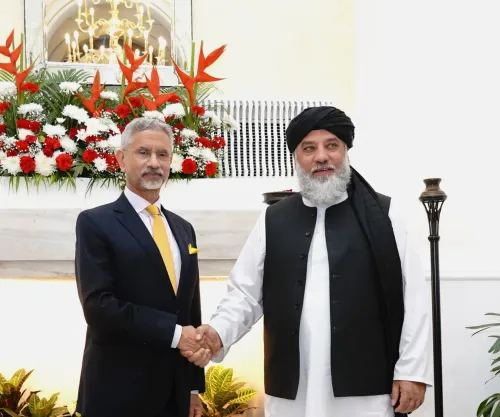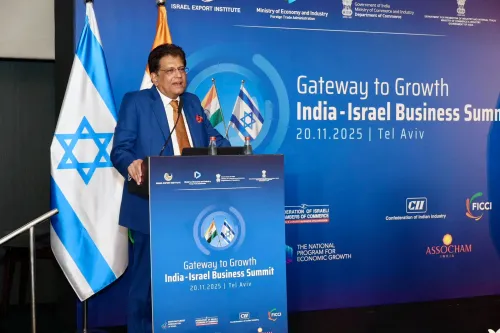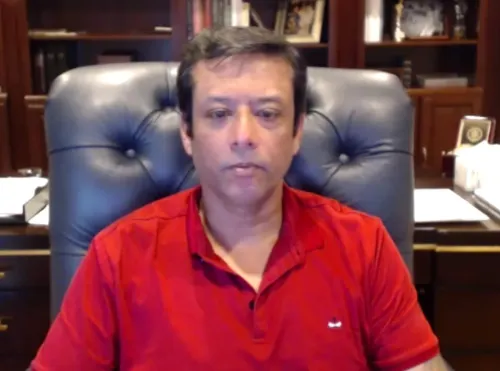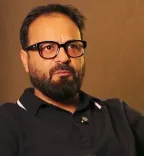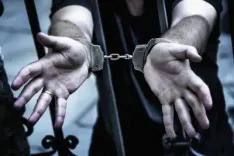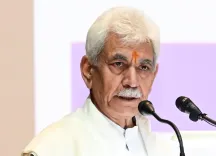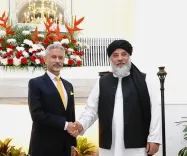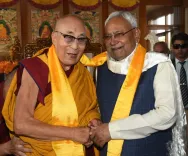Could Hillary Clinton Actually Nominate Trump for a Nobel Peace Prize?
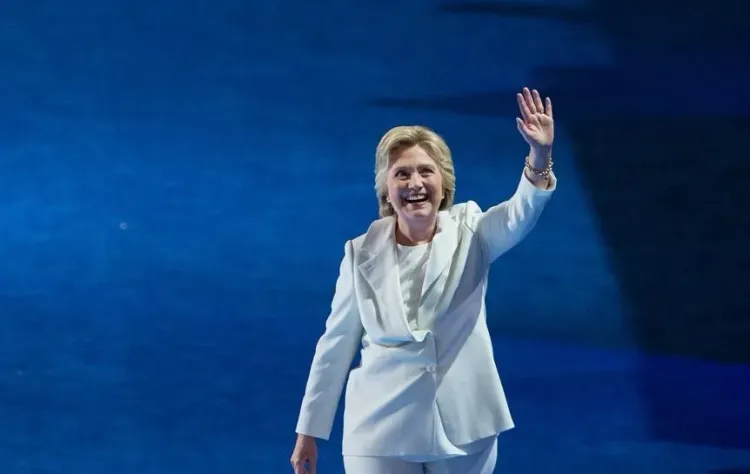
Synopsis
Key Takeaways
- Hillary Clinton is open to nominating Trump for a Nobel Peace Prize if he ends the war favorably for Ukraine.
- The meeting between Trump and Putin could be pivotal in resolving the Russia-Ukraine conflict.
- Trump's approach to ending the war has faced skepticism.
- Clinton's remarks highlight the complexities of political rivalries in diplomacy.
- Putin acknowledged the meeting as a step toward peace.
New Delhi, Aug 16 (NationPress) In a surprising turn of events, former US Secretary of State Hillary Clinton stated that she would consider nominating her long-time political adversary, US President Donald Trump, for a Nobel Peace Prize — provided he successfully concludes the Russia-Ukraine war without compelling Kyiv to relinquish any territory to Moscow.
Clinton's unexpected statement came just hours before Trump's crucial meeting with Russian President Vladimir Putin at Joint Base Elmendorf-Richardson, a historic military base in Anchorage, Alaska.
During her appearance on the 'Raging Moderates' podcast, Clinton remarked, “If he could bring an end to this dire conflict without forcing Ukraine into a position of conceding its territory to the aggressor, he could indeed show strength against Putin — something we haven't witnessed thus far. If President Trump were the architect of such an outcome, I would nominate him for a Nobel Peace Prize.”
She highlighted the geopolitical implications, stating, “He is not meeting a friend; he is facing an adversary who seeks the downfall of the US and the Western alliance.”
Clinton’s comments underscored the significance of the Alaska summit, which many experts deemed a potential turning point in the nearly three-year conflict in Eastern Europe.
The rivalry between Clinton and Trump dates back to the 2016 US presidential election, where Trump emerged victorious in a contentious battle. Throughout the campaign, Clinton criticized Trump's admiration for authoritarian figures like Putin.
“He praises dictators like Vladimir Putin and picks fights with our allies,” she commented.
Additionally, she famously labeled some of his supporters as a “basket of deplorables” and deemed Trump “temperamentally unfit” for the presidency. In response, Trump often ridiculed Clinton during the campaign and later challenged her foreign policy decisions as Secretary of State.
Despite their tumultuous history, Clinton’s remarks imply that she may recognize a significant achievement should Trump succeed in reaching an agreement that favors Ukraine.
Trump has consistently asserted his intention to end the war in Ukraine “swiftly,” although critics question the feasibility of this, especially given Putin's demands for Ukraine to acknowledge Russia's territorial claims and lift Western sanctions. Ukrainian President Volodymyr Zelensky, who was not present at the summit, has firmly opposed any territorial concessions.
Notably, after the summit, both Trump and Putin stated they made progress during their three-hour talks on Friday, moving closer to resolving the Ukraine War, but they did not announce an immediate ceasefire.
“It's not a done deal at all,” Trump told a Fox News interviewer after the Alaska summit. “And Ukraine has to agree. President Zelensky has to agree.”
“We had a very fruitful meeting today, and I think several points were negotiated on behalf of Ukraine,” he added.
Before the summit, he clarified that he would not negotiate on Ukraine's behalf and that the meeting served as a platform to facilitate a direct discussion between Presidents Putin and Zelensky.
Putin characterized the meeting as “constructive and mutually respectful,” indicating that their discussions laid the foundation for peace. He called on Ukraine and European leaders to participate in the dialogue and warned against provocations that could hinder progress.
Trump echoed this sentiment, describing the talks as “extremely productive.”
He noted that several points of consensus were reached, including one “very significant” breakthrough.
However, he cautioned, “There’s no deal until there’s a deal.”
Trump mentioned that he would consult with Zelensky and key European allies before proceeding with any formal agreements.

